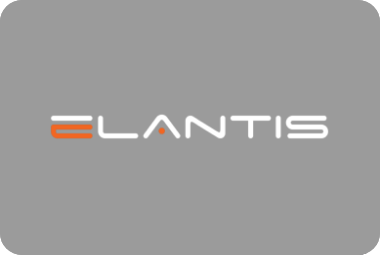There is no shortage of content detailing the importance of developing an automation strategy across all industries and areas of business. If you are looking to maximize the potential of automation, knowing the difference between workflow automation and robotic process automation (RPA) is crucial. Experts at Gartner have discovered that 80% of finance leaders have implemented or are planning to implement RPA into their operations.
This article helps you take full advantage of this trend by answering the following questions:
- What is automation?
- What is workflow automation?
- What is robotic process automation?
- What is the difference between workflow automation and robotic process automation?
What is Automation?
Automation uses innovative AI-driven technology to streamline operational processes within an organization. Automation can be utilized with processes like data analytics, enterprise content management, process mapping, and more!
The reason automation is a focus of many organizations of all sizes is because it can boost efficiency by taking care of repetitive, manual tasks in your operations. This, in turn, results in a variety of benefits for your organization, including:
- Reducing operational costs;
- Creating more time for your employees to focus on tasks that fully require their advanced skills; and
- Limiting the risk of human error.
By implementing intelligent automation into your operations, you will have a not-so-secret weapon helping your organization skyrocket toward its goals. In fact, PWC conducted a study that revealed that half of HR departments today have begun implementing intelligent automation in their operations. Now is the time to start maximizing the efficiency of your organization—don’t get left behind!
What is Workflow Automation?
Workflow automation uses intelligent software to optimize a workflow from its beginning to completion. By automating workflows, the flow of tasks can be streamlined from one employee to the next, ensuring that your data governance is compliant to regulations, stabilizing your supply chain to avoid disruptions, and more. In short, workflow automation can optimize nearly all areas of your business.
What is Robotic Process Automation?
Robotic Process Automation, or RPA, is an advanced automation tool that you can “teach” to automate repetitive tasks. This technology can learn how to recreate clicks and keystrokes that functionally mimics human behaviour, perform tasks like typing into a text field, create spreadsheets, and transfer information from one database to the next, for example. RPA bots can be easily programmed, scheduled, and customized to meet the specific needs of your organization and can operate within the restrictions of your internal parameters.
Many experts are predicting that RPA technology will be a vital tool in the future of all business sectors. A study at Grand View Research has shown that RPA’s current USD 1.89 billion market size will grow to a nearly USD 20 billion market size by 2030.
Simply put: investing in RPA technology will be an investment in its ubiquitous future in the business world.
What is the Difference Between Workflow Automation and Robotic Process Automation?
After reviewing the features of workflow automation and robotic process automation, highlighting the differences may not be immediately obvious. However, if you would like to maximize the potential of automation in your organization, it is important to know the differences and similarities between workflow automation and robotic process automation, along with the specific instances where one should be used over the other.
The key difference between workflow automation and robotic process automation is scope:
- Workflow automation tools are geared toward the automation of processes and tasks completed within a workflow. Workflow automation ensures that a process remains optimized from one phase to the next, saving time and money by eliminating human error and avoiding miscommunication inefficiencies. In this sense, you can view workflow automation tools as a manager: delegating tasks throughout a process from one phase to the next, ensuring all information is accurate and accessible so employees have everything they need to succeed.
- Robotic process automation tools are geared toward the automation of repetitive tasks within a process. RPA can be “taught” to take care of basic, manual tasks such as data entry, data extraction, auto-filling forms/spreadsheets, etc. In this sense, if workflow automation is viewed as the process manager, then robotic process automation is the skilled employee to whom the manager delegates specific tasks. However, to be clear, this does not mean RPA tools are sentient beings that will steal our jobs; they are bots that do the repetitive and mundane tasks, freeing up time for employees to focus on advanced tasks that require their skills and training.
How Elantis Can Help You Optimize Your Automation Strategy
Our team of automation experts at Elantis have advanced knowledge of workflow automation and robotic process automation tools such as Nintex Process Platform and Microsoft Power Platform. This broad expertise allows us to make unbiased recommendations and tailor our solutions your specific requirements. Book a free consultation with one of our experts to see how we can help skyrocket your automation strategy!

























